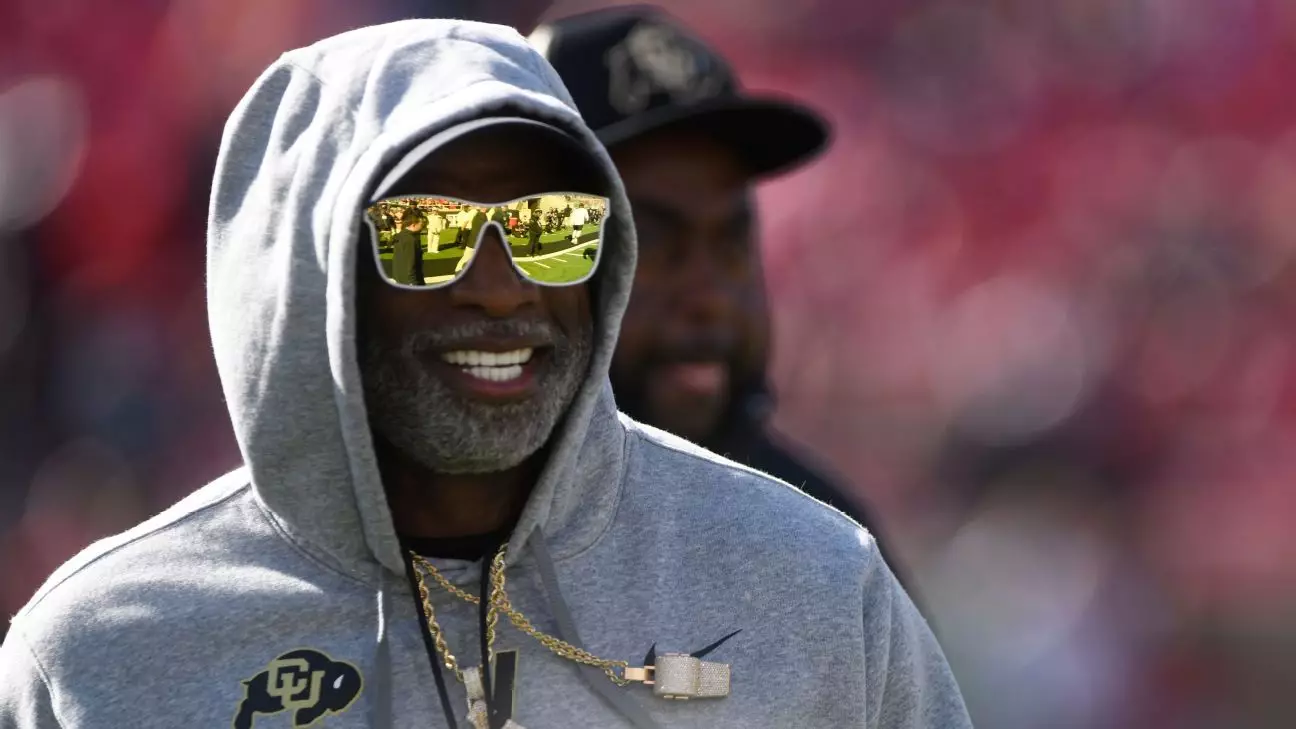Deion Sanders, known as “Coach Prime,” has transformed the Colorado Buffaloes football program in stunning fashion. With a recently secured five-year contract extension worth a staggering $54 million, he has made headlines not only for his paycheck but also for what it represents—a seismic shift in college athletics. This contract extension does not merely solidify his status as one of the highest-paid coaches in the nation; it symbolizes a broader cultural and economic revolution within college football that raises several fundamental questions about values, priorities, and the future of sports at the collegiate level.
Breaking Down the Numbers: What They Mean for the Future of College Sports
Sanders’ pay scale is resounding, escalating to $10 million by 2025 and peaking at $12 million in 2029. Such a financial commitment from the University of Colorado reflects not only confidence in his coaching abilities but also the increasing commercialization of college sports. In an era where student-athletes are beginning to reap financial rewards from their own name, image, and likeness (NIL), the profound wealth being funneled into coaching salaries begs the question: Are universities prioritizing a handful of elite figures over the educational experiences of their student-athletes?
Moreover, the staggering economic impact noted from just one season—a reported $93.9 million to Boulder and $146.5 million regionally—compounds this inquiry. While undoubtedly impressive, one must consider whether the inflated rhetoric surrounding economic benefits translates to tangible improvements within the university or the local community. Sandwiched amidst multi-million-dollar contracts, is the student athlete’s experience as a student truly prioritized, or merely overshadowed by the tantalizing spectacle of collegiate sports?
A New Paradigm: Sanders’ Vision Beyond Football
In his statements, Sanders emphasized the importance of developing young men who are “ready to take on the world,” suggesting an ethos that extends beyond the gridiron. This is commendable; however, it is critical to scrutinize whether such a noble mission supersedes the underlying financial motives that appear to be at play. The increase in applications, particularly from Black and non-white students, is certainly a positive byproduct of his tenure. Yet, we must ponder whether this interest will cultivate a diverse community or serve merely as a PR tactic designed to bolster applications and bolster football revenues.
Furthermore, Sanders openly expressed his desire to commit to this project long-term—highlighting as much as the love for the football program as it is for the job itself. He punctuated this with a casual request for “at least a five-bedroom home with acreage for sale.” This whimsical request could be perceived as showing heart and personality, yet it also underscores the disconnection many coaches share with the everyday struggles of the average student or community member. Does this kind of lifestyle inherently create any accountability on the coach’s role within a university dedicated to serving its students?
Cultural Transformation or Commercial Exploitation?
The palpable excitement surrounding Sanders is evident and infectious, yet it’s essential to critique whether this enthusiasm ultimately leads to genuine cultural transformation or merely perpetuates the exploitation inherent in sports. Like many lucrative contracts in college athletics, this arrangement can be viewed through a dual lens—one that celebrates the spirit of competitive achievement while also recognizing the risks of commodifying young athletes.
While the allure of college athletics continues to grow, one must contend with the ethical implications of excessive compensation for coaches juxtaposed against the experiences of student-athletes navigating their academic and athletic careers. Will the financial backing allow for improvements in facilities, coaches, and resources for athletes? Or will it become another chapter in an ongoing saga that overlooks the essence of collegiate sport—the education and holistic development of young people?
In the whirlwind of excitement surrounding Coach Prime’s extension, the conversation must evolve from mere storytelling around impressive statistics and viewership to a critical discourse surrounding the values we place on sports and education. The landscape of college football is shifting dramatically, and those changes invite a re-examination of what it means to genuinely prioritize the development of young men and women in our colleges and universities.

Leave a Reply